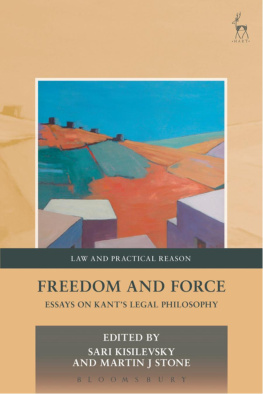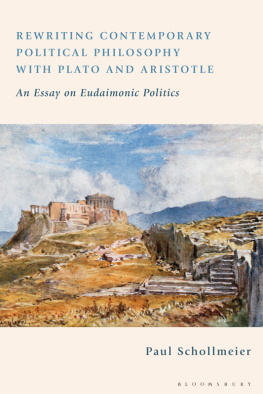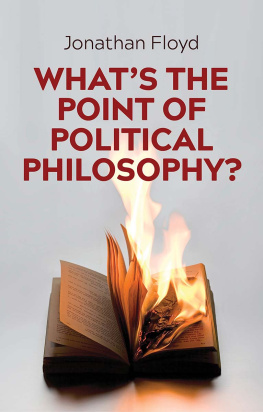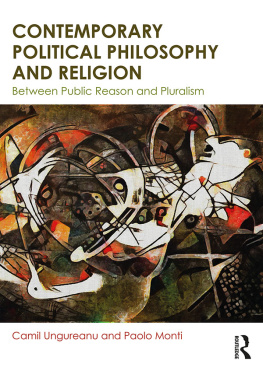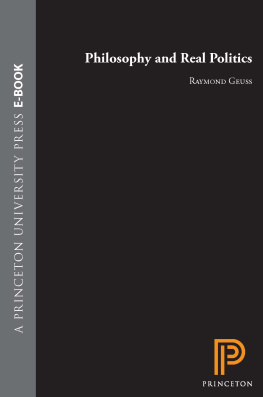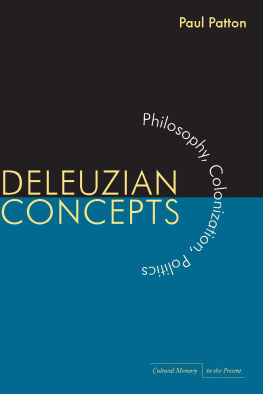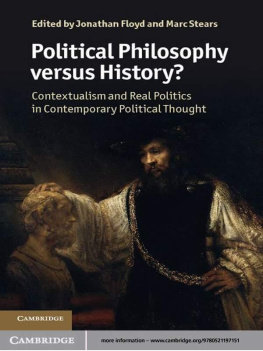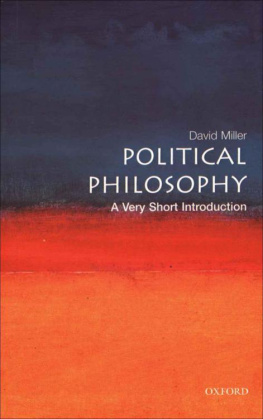Political philosophy maintains closer contact, I believe, with the history of its subject than many other areas of philosophy do. Perhaps this is due to the close intermingling of political philosophy with political theory (as practiced in departments of politics, political science, or government) where the historical dimension is especially prominent. I have chosen, nevertheless, to concentrate on the kinds of issues with which the canonical theorists themselves were concerned (when they werent interpreting their own predecessors). So many of the other chapters make contact with their work that it seemed appropriate to include an overview of these two defining figures now that they are sadly gone and their bodies of work complete.
. The Era of Rawls
The work of John Rawls, even more than that of Robert Nozick, continues to exert enormous influence and is mentioned in the text or bibliography of about two-thirds of the chapters in this volume. The pieces were commissioned, of course, and so it is not a random sample of any kind, but I believe this reflects the continuing importance of Rawlss thought in current work in the field of political philosophy. It is certainly central (sometimes, of course, as a foil) to the current debates, as we can see from the chapters in this volume, about equality (see Anderson), justice (see Arneson), classical liberalism (see Tomasi and Brennan), social contract approaches (see Freeman), global justice (see Risse), and ideal and nonideal theory (see Swift and Stemplowska).
Rawls has long figured prominently in a certain received view, which I describe later, of how political philosophy has developed since the 1960s. As time goes on, that familiar story is looking less plausible, or at least greatly exaggerated in certain ways. logical and conceptual clarification. He confronted the great question of social justice head on, striking a chord with activists who were fighting against the sterility of academe.
But there is a puzzle about this story, this emphasis on Rawlss direct engagement with moral issues. When the book came out, students and faculty were clamoring for relevance in their studies. It is true that TJ was less sterile than most philosophy (written in English) of the preceding decades. On the other hand, Rawls himself studiously avoided joining the controversies that rocked American society in the 1960s. His defense of civil disobedience and conscientious refusal to obey certain laws was an exception; even there, he never said how these principles applied to current events. The book (unlike the man, Im told) said nothing directly about the current civil rights controversies, the Vietnam war (the book was mostly finished by the time that war sent students into the streets), or feminism. Yet intellectuals moved by those events were galvanized by the idea that questions of social justice might be situated in such a broad and deep philosophical account, supported by powerful arguments drawing on the whole Western philosophical tradition from Socrates through Rousseau, Kant, Hegel, Marx, and Mill. The puzzle is this: How did such an abstract and learned treatment of the idea of social justice meet the needs of that turbulent and impatient time?
From his very earliest writing, Rawls wondered whether the contenders in certain reasonable but intractable controversies could be brought to see that they shared many important assumptions. If they could, then they might pursue their differences more productively on that common basis. At the beginning, the controversies he tried to steer around were esoteric philosophical disputes about the nature and knowability of moral claims in general. (Are all moral claims merely subjective in some way? Is there a moral reality independent of our moral thoughts? Can moral claims be logically derived from nonmoral ones?) In his later writing, the contentious disputes he sought to circumvent were those that arose when political actions were defended on the basis of sectarian religious principles or other deep convictions about the meaning of life.
In his other major book, Political Liberalism, Rawls (1993) spoke of philosophys potential for reconciliation, though this can easily be misunderstood. Reconciliation can be a tepid, shameful stance when some of the contenders in the conflict are contemptible. Rawls loved the example of Lincolns decision to go to war as the only way to prevent the spread of slavery and the splitting of the nation. Butand here is the familiar moral fact at the very center of Rawlss thought over the yearscontroversies arise even among reasonable, informed, morally decent people. In that case, Rawls thought, there are probably important issues that all sides agree on and important commitments on which their shared decency and reasonableness depend. The identification of that common ground, if it is possible, would promote a kind of reconciliation, although we still could not just retreat to our shared assumptions and avoid the need to make the difficult decisions about which we initially disagreed. The goal was not to banish conflict. But, Rawls thought, if we can find and articulate our shared principles and convictions, adjusting them when necessary to (p. 6) accommodate more specific convictions, at least we might narrow the range of disagreement. Some of the original contending views might turn out to be indefensible; new views might emerge that make better sense of the basic principles. Disagreement might then be pursued more productively.
The search for common ground is an exercise in abstraction, the bracketing of specifics to identify more general similarities and affinities among differing worldviews. The principles Rawls arrives at, then, are more or less familiar and unspecific in practice. This is, in my view, no indictment, but I doubt that Rawls can be appropriated by authors who believe that proper political philosophy should always be addressed to pressing problems and offer practical solutions. Rawlss two principles are, of course, in need of practical interpretation, and his own interpretation includes elements that are less familiar and more controversial than the principles themselves. He writes that justice as fairness leaves open the question whether its principles are best realized by some form of property-owning democracy or by a liberal socialist regime (Rawls , xv). Each of these is conceived as an alternative to capitalism, and he goes to great lengths to distinguish property-owning democracy from the more familiar idea of a welfare state. However, the idea of property-owning democracy was not clarified and elaborated on by Rawls until many years after the publication of


